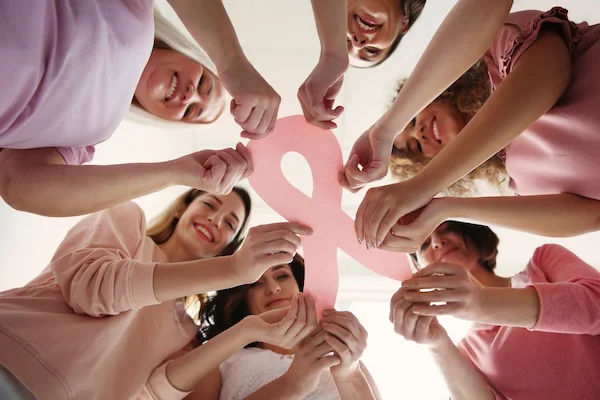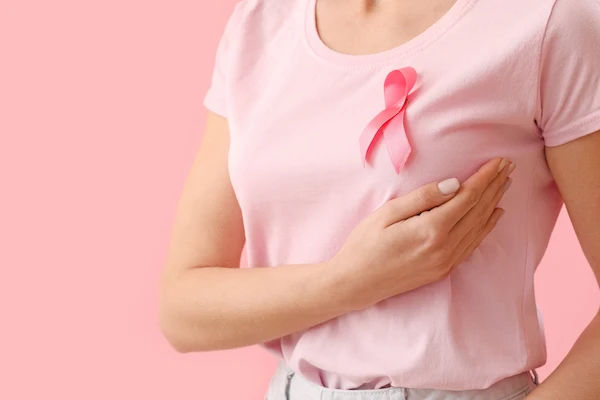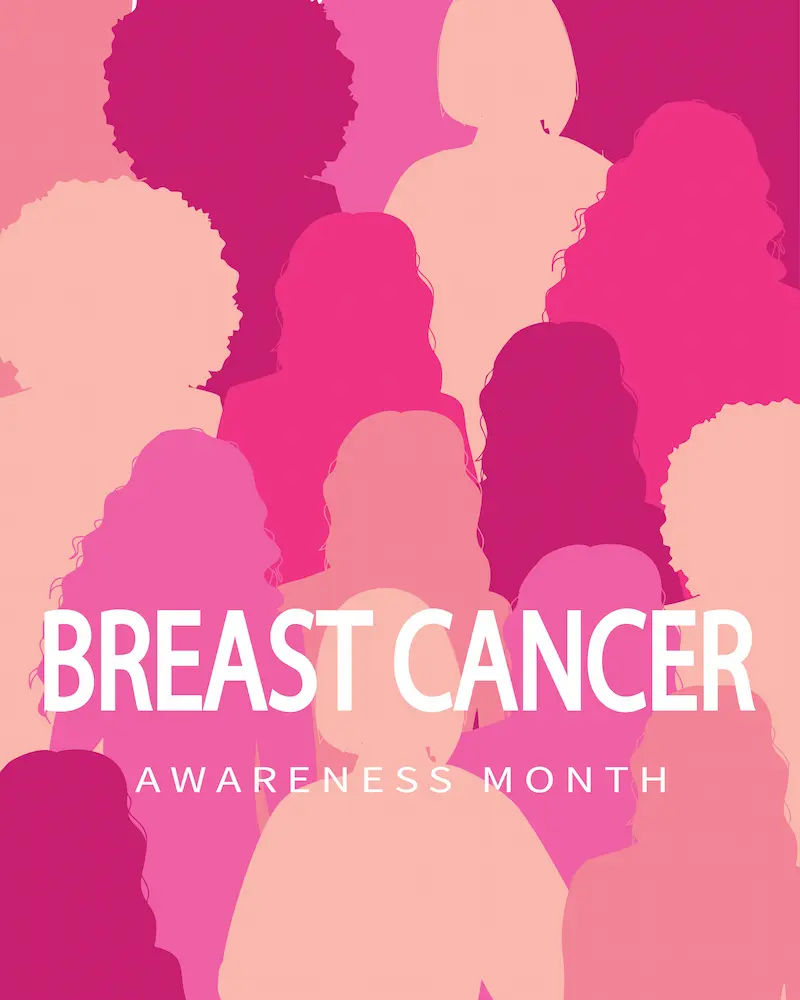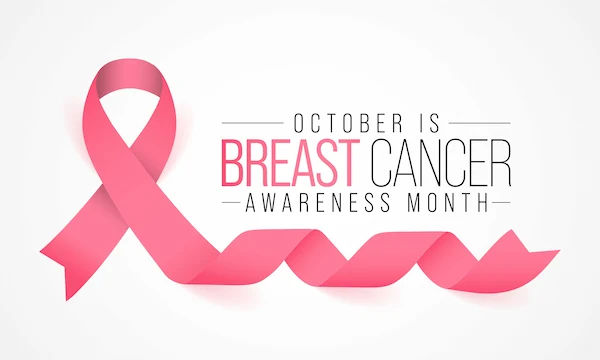Guide to Risk Factors Of Breast Cancer The Ones You Can Control
Discover controllable breast cancer risk factors and learn how lifestyle, diet, and hormonal choices can reduce your risk. Take proactive steps for prevention and long-term health.

Written by Dr. Siri Nallapu
Reviewed by Dr. Shaik Abdul Kalam MD (Physician)
Last updated on 13th Jan, 2026

Introduction
Breast cancer is a concern for many, and understanding its causes can feel overwhelming. While some risk factors, like genetics and age, are beyond our control, a significant number are not. This guide focuses squarely on the risk factors you can influence—the actionable choices and habits that play a crucial role in cancer prevention. Knowledge is power, and by understanding these modifiable factors, you can take proactive steps to reduce your risk and empower your long-term health. We will delve into the science behind lifestyle choices, dietary patterns, and environmental exposures, providing you with a clear, evidence-based roadmap to help you make informed decisions for your well-being.
Understanding Risk: What You Can and Cannot Change
It's crucial to frame the conversation about risk accurately. Having a risk factor does not mean you will get breast cancer, and many people with several risk factors never develop the disease. Conversely, some people with no known risk factors do. It's about probability.
Non-Modifiable Risk Factors (A Quick Overview)
These are important to acknowledge but cannot be changed. They include:
- Being Female: Simply being a woman is the single biggest risk factor.
- Age: Risk increases as you get older; most breast cancers are found in women over 50.
- Genetic Mutations: Inherited changes in certain genes, like BRCA1 and BRCA2.
- Family History: Having a first-degree relative (mother, sister, daughter) with breast cancer.
- Personal History: A previous breast cancer diagnosis or certain benign breast conditions.
- Dense Breast Tissue: Dense breasts have more connective tissue than fatty tissue, which can make mammograms harder to read and is independently linked to higher risk.
- Menstrual History: Starting periods before age 12 or beginning menopause after age 55.
Why Focusing on Modifiable Factors is Empowering
Dwelling on factors you cannot change can lead to anxiety and a sense of helplessness. Shifting your focus to the
aspects of your health you can control is an empowering and practical strategy. Research from the American Cancer Society suggests that a large percentage of breast cancers could be prevented through lifestyle changes. This does not guarantee prevention, but it significantly stacks the odds in your favour, giving you agency over your health journey.
Lifestyle Choices and Breast Cancer Risk
Your daily habits are among the most powerful levers you can pull to influence your cancer risk profile.
Alcohol Consumption: Finding Your Limit
The link between alcohol and breast cancer risk is clear and dose-dependent. Alcohol can increase levels of oestrogen and other hormones associated with hormone-receptor-positive breast cancer. It may also damage DNA in cells. Studies show that even light drinking (one alcoholic drink per day) increases risk slightly, while heavier drinking increases it more substantially. The key is moderation. If you drink, limit yourself to no more than one drink per day.
Consult an Oncologist for Personalised Advice
The Weight Connection: Body Fat and Oestrogen
Maintaining a healthy weight is a cornerstone of reducing breast cancer risk, especially after menopause. Before menopause, your ovaries produce most of your oestrogen. After menopause, when the ovaries stop producing oestrogen, body fat becomes a primary source. Higher amounts of fat tissue mean higher oestrogen levels, which can fuel the growth of hormone-receptor-positive breast cancers. Furthermore, overweight and obese individuals often have higher levels of insulin, which has also been linked to some cancers.
The Impact of Weight Gain After Menopause
Research is particularly strong regarding weight gain in adulthood. Gaining weight as an adult – especially after menopause – is consistently linked to a higher risk of breast cancer compared to maintaining a stable, healthy weight. This highlights the importance of long-term weight management rather than short-term dieting.
Physical Activity: Your Body's Natural Defence
Regular exercise to prevent breast cancer works through multiple mechanisms. It helps control weight, lowers oestrogen and insulin levels, and boosts the immune system. The American Cancer Society recommends at least 150-300 minutes of moderate-intensity or 75-150 minutes of vigorous-intensity activity each week. This does not have to be gruelling; brisk walking, cycling, swimming, and dancing all count. The goal is to get moving and stay consistent.
Reproductive History and Hormonal Factors
Choices and circumstances surrounding reproduction and hormones have a complex relationship with breast cancer risk.
Pregnancy and Breastfeeding
Women who have not had children or who had their first child after age 30 have a slightly higher risk. Pregnancy reduces the total number of menstrual cycles a woman has in her lifetime, which may be part of the reason.
Furthermore, breastfeeding lowers cancer risk, especially when continued for a year or more. The protective effect is likely due to the fact that it delays the return of menstrual periods after childbirth, reducing lifetime exposure to hormones like oestrogen.
Hormone Replacement Therapy (HRT): Weighing the Benefits and Risks
Used to relieve menopausal symptoms, HRT (particularly combined hormone therapy) is a significant modifiable risk factor. The landmark Women's Health Initiative study found that using combined oestrogen and progestin therapy after menopause increases the risk of breast cancer. The risk appears to return to normal within about five years of stopping the therapy.
Combined HRT vs. Oestrogen-Only Therapy
The type of HRT matters greatly. The increased risk is primarily associated with combined HRT. Women who have had a hysterectomy and use oestrogen-alone therapy have a much lower, or even no, increased risk of breast cancer. If you are considering HRT to manage menopausal symptoms, it is vital to have a detailed discussion with your doctor from Apollo24|7 about your personal and family history to weigh the benefits against the potential risks.
Dietary Patterns: Fuelling Your Health
While no single "superfood" can prevent cancer, your overall dietary pattern plays a supporting role in managing risk.
The Mediterranean Diet: A Gold Standard
This eating pattern, rich in fruits, vegetables, whole grains, legumes, nuts, fish, and olive oil, is consistently associated with a lower risk of various cancers, including breast cancer. It's high in fibre, antioxidants, and healthy fats, which help fight inflammation and maintain a healthy weight—two key factors in cancer prevention.
Foods to Limit: Red and Processed Meats
Some large studies have suggested a potential link between a diet for breast cancer prevention that is low in red meat (beef, pork, lamb) and processed meats (sausages, hot dogs, bacon) and a reduced risk. While the evidence is not as strong as it is for colon cancer, limiting these foods is a good general health practice. Opt instead for lean protein sources like chicken, fish, beans, and lentils.
Environmental and Medical Exposures
Radiation Exposure: A Note on Medical Imaging
High-dose radiation exposure to the chest area (e.g., for treatment of Hodgkin lymphoma or other cancers) at a young age is a known risk factor. However, the low-dose radiation from modern mammograms is minimal and the benefits of early detection far outweigh the tiny potential risk. Always discuss the necessity of any imaging test with your doctor.
The Role of Night Shift Work and Circadian Rhythm
The World Health Organization has classified night shift work as a "probable carcinogen" due to its disruption of the body's circadian rhythm (sleep-wake cycle). This disruption can affect melatonin production, a hormone that may have protective anti-cancer properties. While more research is needed, maintaining good sleep hygiene is always a pillar of good health.
The Power of Proactive Health Management
Regular Screenings and Self-Examinations
You cannot control your risk factors in a vacuum. The most important action you can take is to adhere to
recommended screening guidelines. Early detection saves lives. Know how your breasts normally look and feel and
report any changes immediately. For women of average risk, annual mammograms typically start at age 40 or 45. If you have a strong family history or other concerns, consult a doctor online with Apollo24|7 to create a personalised screening plan that may start earlier or include additional tests like MRI.
The Importance of Discussing Family History with Your Doctor
Understanding your family history is critical. If you have multiple relatives with breast or ovarian cancer, especially at a young age, you may benefit from genetic counselling and testing. This knowledge can inform powerful preventive strategies.
Conclusion
Understanding your risk factors for breast cancer is the first and most crucial step toward prevention. While genetics and age set the stage, your daily choices write a significant part of the script. By embracing a healthy lifestyle—managing your weight, staying active, drinking less, and making informed choices about hormones—you actively lower your risk. This journey is not about perfection; it is about progress and consistency. Remember, you are not alone in this. Partner with healthcare professionals to create a plan tailored to your unique health profile. If you have concerns about your personal risk factors based on your lifestyle or family history, book a consultation with a doctor on Apollo24|7 for personalised advice and peace of mind. Taking charge of your health today is the most powerful investment you can make for your future.
Consult an Oncologist for Personalised Advice
Consult an Oncologist for Personalised Advice

Dr. Amit Choraria
Surgical Oncologist
18 Years • MBBS, MS (Surgery) Fellow, Surgical Oncology, Tata Medical Center (FSO) Fellow, European Board of Surgery (Surgical Oncology) (FEBS) Fellow, Minimal Access Surgery (FMAS) Fellow, Indian Association of Gastrointestinal Endosurgeons (FIAGES) UICC Fellow, Royal Marsden NHS, London, UK Visiting Scholar, Plastic Reconstructive Surgery, CGMH, Taiwan Fellow, Robotic Surgical Oncology, Vattikuti Foundation, USA
Kolkata
Apollo Multispeciality Hospitals , Kolkata, Kolkata
(75+ Patients)

Dr Devashish Tripathi
Radiation Specialist Oncologist
20 Years • MBBS, PLAB, MRCP (UK)- General Medicine, FRCR (Oncology), Certificate of Completion of Training (CCT)- Clinical Oncology
Delhi
Apollo Hospitals Indraprastha, Delhi

Dr. Harsh J Shah
Surgical Oncologist
15 Years • MS, MCh (GI), DrNB (GI)
Ahmedabad
Apollo Hospitals Gandhinagar, Ahmedabad
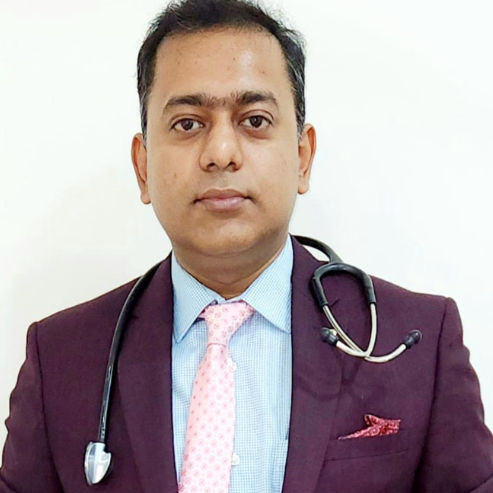
Dr.sanchayan Mandal
Medical Oncologist
17 Years • MBBS, DrNB( MEDICAL ONCOLOGY), DNB (RADIOTHERAPY),ECMO. PDCR. ASCO
Kolkata
Dr. Sanchayan Mandal Oncology Clinic, Kolkata

Dr. Sandeep Muzumder
Radiation Specialist Oncologist
21 Years • MBBS (JIPMER, Pondicherry), MD (AIIMS, New Delhi)
Bhubaneswar
Apollo Hospitals Old Sainik School Road, Bhubaneswar
Consult an Oncologist for Personalised Advice

Dr. Amit Choraria
Surgical Oncologist
18 Years • MBBS, MS (Surgery) Fellow, Surgical Oncology, Tata Medical Center (FSO) Fellow, European Board of Surgery (Surgical Oncology) (FEBS) Fellow, Minimal Access Surgery (FMAS) Fellow, Indian Association of Gastrointestinal Endosurgeons (FIAGES) UICC Fellow, Royal Marsden NHS, London, UK Visiting Scholar, Plastic Reconstructive Surgery, CGMH, Taiwan Fellow, Robotic Surgical Oncology, Vattikuti Foundation, USA
Kolkata
Apollo Multispeciality Hospitals , Kolkata, Kolkata
(75+ Patients)

Dr Devashish Tripathi
Radiation Specialist Oncologist
20 Years • MBBS, PLAB, MRCP (UK)- General Medicine, FRCR (Oncology), Certificate of Completion of Training (CCT)- Clinical Oncology
Delhi
Apollo Hospitals Indraprastha, Delhi

Dr. Harsh J Shah
Surgical Oncologist
15 Years • MS, MCh (GI), DrNB (GI)
Ahmedabad
Apollo Hospitals Gandhinagar, Ahmedabad

Dr.sanchayan Mandal
Medical Oncologist
17 Years • MBBS, DrNB( MEDICAL ONCOLOGY), DNB (RADIOTHERAPY),ECMO. PDCR. ASCO
Kolkata
Dr. Sanchayan Mandal Oncology Clinic, Kolkata

Dr. Sandeep Muzumder
Radiation Specialist Oncologist
21 Years • MBBS (JIPMER, Pondicherry), MD (AIIMS, New Delhi)
Bhubaneswar
Apollo Hospitals Old Sainik School Road, Bhubaneswar
More articles from Breast Cancer
Frequently Asked Questions
I have a family history of breast cancer. Does that mean lifestyle changes will not help me?
Absolutely not. While you cannot change your genetics, modifying your lifestyle factors can still significantly influence your overall risk. It might be even more important for you to focus on controllable factors to counterbalance your genetic predisposition.
How much does exercise actually lower breast cancer risk?
Substantially. Research shows that regular physical activity can reduce risk by 10-20%. The effect is seen in both premenopausal and postmenopausal women and is attributed to exercise's role in regulating hormones, reducing inflammation, and helping with weight management.
Is there a specific type of alcohol that is safer than others?
No. The increased risk is linked to the ethanol (alcohol) content in the drink itself, not the type of beverage (wine, beer, or liquor). Therefore, moderation is the key principle regardless of your drink of choice.
Can I reverse my risk if I start making healthy changes later in life?
Yes. It's never too late to benefit. For example, losing weight after menopause, even if you have been overweight for a long time, can still help lower your oestrogen levels and reduce your risk. Quitting drinking or starting an exercise routine at any age confers health benefits.
Does using antiperspirant or wearing an underwire bra increase risk?
No. Despite persistent myths, extensive research has found no conclusive evidence linking the use of antiperspirants or underwire bras to an increased risk of breast cancer.
